Touhou Project is the most popular shoot ‘em up game you’ve never heard of.
According to Touhou Wiki:
The Touhou Project (東方Project), also 東方プロジェクト (Touhou Purojekuto) or Project Shrine Maiden, is a Japanese doujin game series that specialises in shoot 'em ups by sole Team Shanghai Alice member ZUN. Generally, it's a series of 2D (with 3D background) vertically-scrolling danmaku shooting games, that also creates related print works and music CDs.
Still doesn’t tell you much, does it?

What is Touhou?
Many years ago, I was introduced to Touhou by an online friend. With his help, I installed some of the oldest games I had experienced to date on my shitty laptop. They were the original PC-98 Touhou games. I played maybe ten minutes of Highly Responsive to Prayers (first released in 1996) before I got frustrated and moved on.
The premise, however, stuck in my mind: Red-clothed shrine maiden Reimu Hakurei lives and works at Hakurei Shrine, situated on the border between the human realm and Gensoukyou, the realm of supernatural, ghostly, and godly beings. Tasked with defending the humans, she shoots heaps of colourful bullets at her supernatural enemies. Her best friend and secondary player character is broom-riding witch Marisa Kirisame. The games are populated with a kaleidoscope of characters inspired by Japanese mythology and folklore: gods and ghosts, fairies, demons, tanuki, kitsune, and more. Each enemy opens with a few lines of dialogue before plunging into battle with intricate and vivid attack patterns.
When I stumbled upon Touhou Project for the second time, I stayed for the characters, the setting, the stories, the music. Everything but the games, really1. I started reading the manga Strange and Bright Nature Deity. I listened to IOSYS and Akatsuki Records2 on repeat. I helped translate fan works like Forbidden Scrollery and Cage in Lunatic Runagate into German. In short, I fell in love with it.
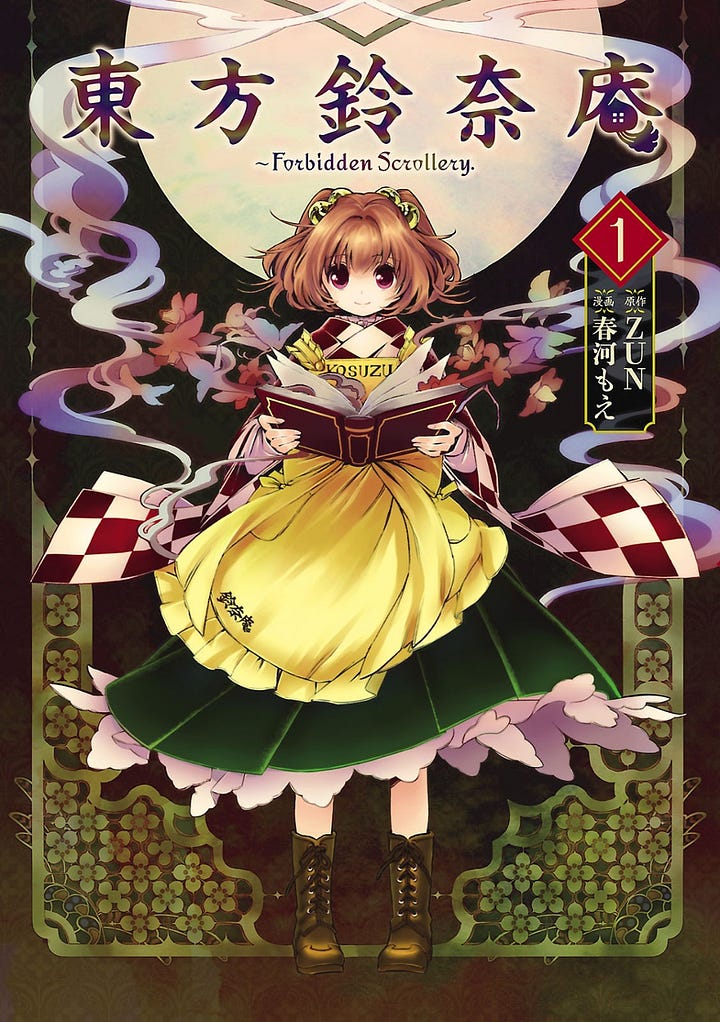
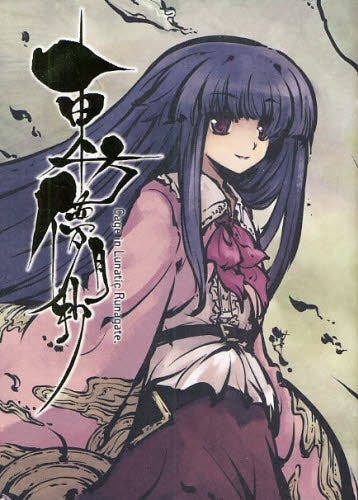
To me, the success of Touhou Project is as fascinating as the series itself. Outside of Japan, it might be called an underground phenomenon. In Japan, most people know of it thanks to the so-called yukkuris3, talking heads of the main characters that can crop up in Youtube videos explaining or commenting on something completely unrelated to Touhou.
Needless to say, Touhou Project is a long-standing and beloved series. Its success—not only commercial but also in bringing together a diverse and creative fan community—offers inspiration to writers. In analysing it, I hope to learn lessons I can apply to my own writing and storytelling.
What makes Touhou so popular?
Manga, anime, light novels, audio drama, TV, theatre, videogames—Japan has a healthy entertainment industry, to say the least. There’s no shortage of multimedia franchises to choose from. What is it that makes Touhou Project stick out from the crowd?
I believe it comes down to four aspects that Touhou does exceptionally well.
1. Consistent success as indie game series
The creator of Touhou Project, known as ZUN, started making the games by himself while at university. He literally did everything himself: art, coding, music, and selling the CDs. To this day, ZUN creates the main games himself and acts as creative advisor for spin-off games developed by other studios, manga and other print works.
Instead of commercialising and trying to appeal to a wider audience, Touhou has managed to stay true to its original spirit with little variation in the base games.
Perhaps it should not be called indie but rather doujin. Indie games are defined in contrast to AAA games developed by large studios, whereas the Japanese doujin space is characteristically hobbyist and disregards commercial profit. As ZUN first sold his games at Comiket, Japan’s biggest doujin market, Touhou Project can be seen as doujin too4.
2. Challenging but rewarding gameplay
Danmaku (jp. 弾幕, literally “barrage” or “bullet curtain”) or bullet hell games are notoriously difficult to beat. Players invest hours upon hours of practice to not only beat the games but also achieve high scores. There are countless videos and articles with beginner advice, threads full of commiseration about the grind. World record score holders are celebrated.
I lack the patience and dedication to beat Touhou games but to a certain player type, they strike just the right balance between challenging and rewarding. Imagine going through the exact same game two, three, ten times—no one would do it unless they loved it to begin with. Then imagine the satisfaction of beating the final boss of this game you love. In lunatic mode. After weeks of practice.
It’s the difficulty that makes it so rewarding, the repetition that cultivates emotional investment.
3. Lore and storytelling
Many other fans, however, all but ignore the original games. They might have played one or two but to them, the games are not what Touhou is about. Instead, it’s the characters, their adventures and Gensoukyou, the world they inhabit—in other words, the lore.
After 28 year of development, Touhou lore is rich and varied. There are at least 180 characters across 24 games and official print media such as manga and light novels. As mentioned above, the stories follow shrine maiden Reimu Hakurei as she investigates supernatural incidents around Hakurei Shrine and strives to protect humans from the youkai of Gensoukyou. Reimu isn’t your typical shrine maiden though. She is lazy, greedy, hot-tempered, and somehow ends up befriending the very youkai she is supposed to punish or exorcise.
When ZUN first developed Touhou Project, space SF settings were the popular standard for videogames. Still, he deliberately took inspiration from Shinto and Japanese mythology, and that inspiration runs deep: Many story lines make subtle points about the nature of humans vs. supernatural beings, the universe, and the necessity of religion, myths and legends. There is a lot of depth, which I will discuss in a separate essay.
The tone, which alternates between humorous and profound, is a perfect match for the stories too, supporting the lighthearted but also the philosophical.
4. Attitude towards fan works
In addition to official games and print media, there are countless fan-made games, comics, novels, and various merchandise from t-shirts, figurines, and plushies to—I kid you not—stained-glass artwork.
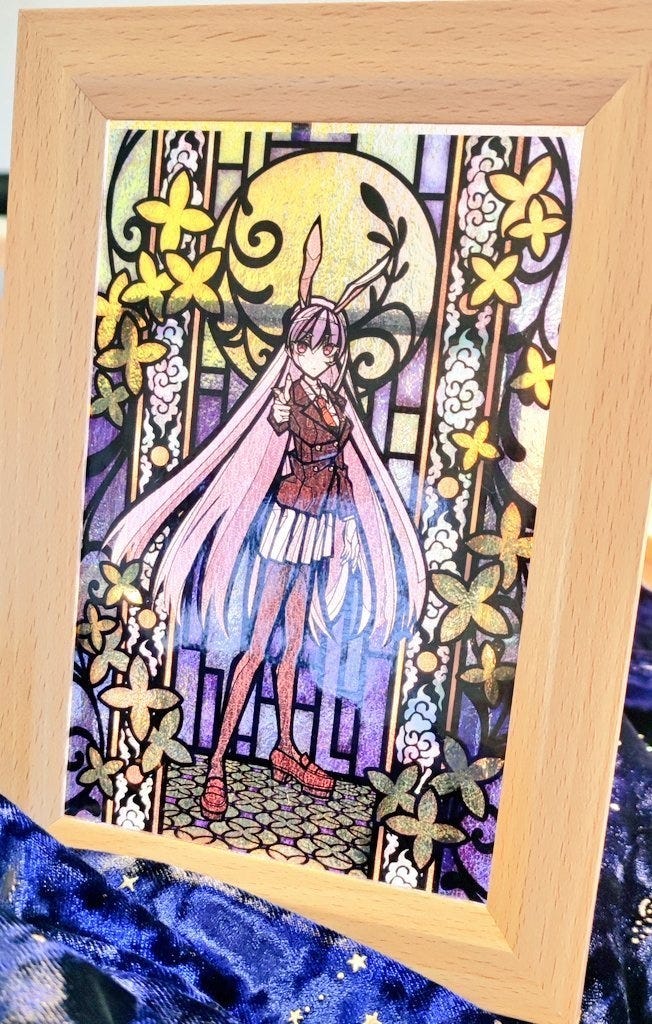
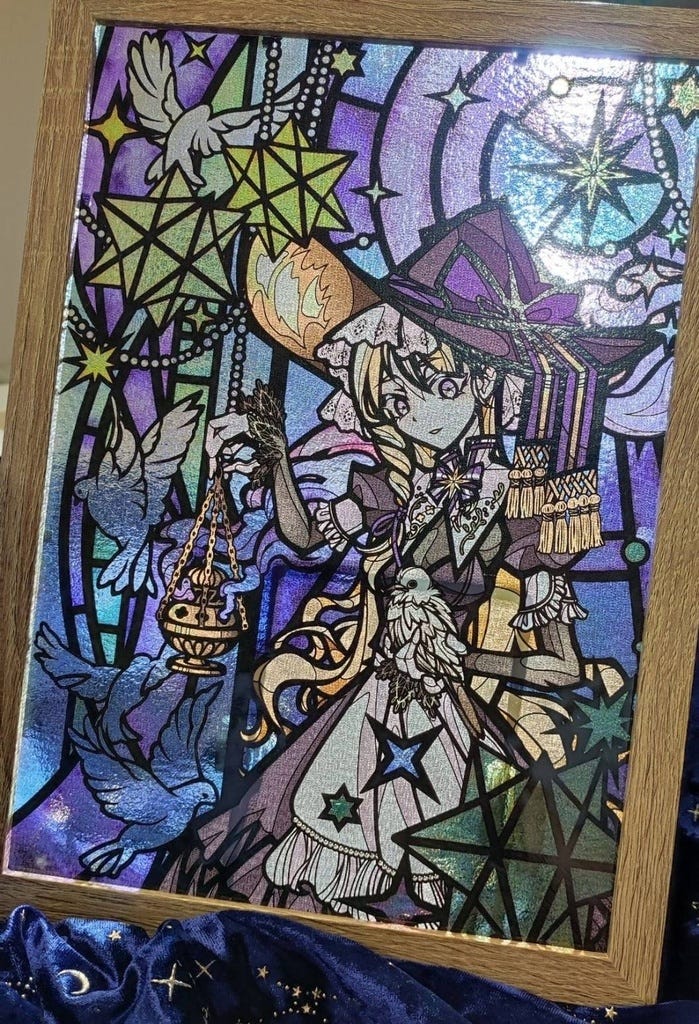
You might wonder: What is it about Touhou that encourages its fans to create?
It’s ZUN’s attitude. He not only allows, but actively encourages fan works and only asks that they get his permission to sell (which he generally gives).
While there’s a fair number of Touhou content at Comiket, Touhou has its own events too. The largest of which is Hakurei Jinja Reitaisai or the Annual Hakurei Shrine Great Festival (a name modelled after traditional shrine festivals, usually shortened to Reitaisai), dedicated solely to selling and buying Touhou fan works. Every year, Reitaisai draws over 50,000 visitors.
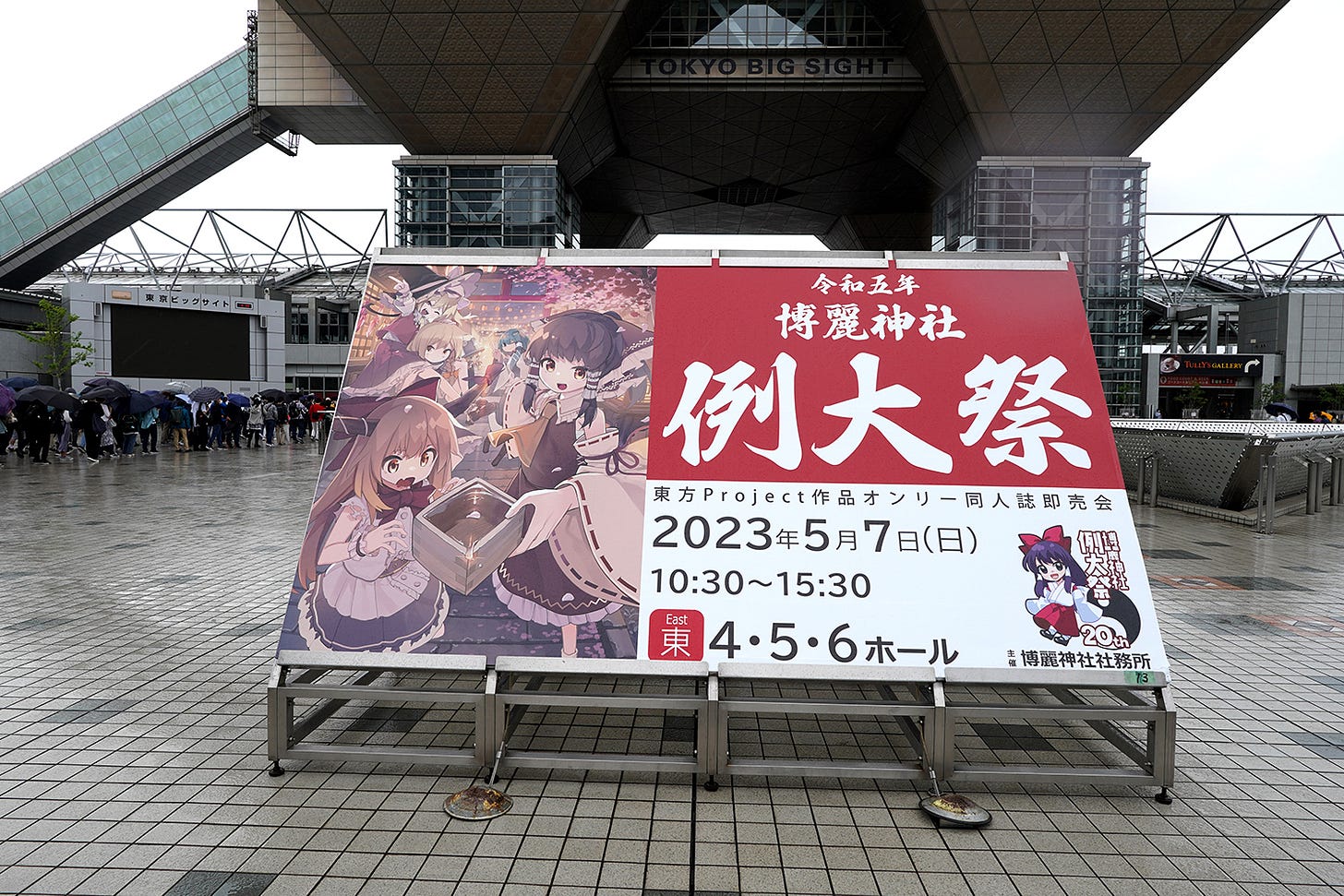
Remixing
More often than not, there is no one secret ingredient we can point to that makes a successful series. With Touhou, I believe it’s the combination of these four aspects: its doujin game status, gameplay, lore, and fan community, that make it as popular as it is.
What does this teach us? It’s never one brilliant idea but always the unique combination of two or more ideas or aspects that make a good story. This is true not only for plot but also for genre, format, medium, anything you can think of. Keep combining familiar elements in new ways. When you’ve hit on something that’s unique enough readers will keep coming back for more.
That doesn’t mean I’m not interested in the games at all. Here’s a chronological breakdown and analysis of all the original Touhou games.
Fan circles remixing the original game soundtracks.
Doujin games have some freedom in that area. Because of that, there is diversity in game content. You do what you want to do. Of course, selling is great, but not everyone is necessarily making games for that reason. Doing something you want to do takes priority over making a profit. Which is why doujin games are fun. Of course, it’s not that money is unnecessary. It’s artistic to say you don’t need money, but the doujin style is to say that if you like it, please pay. Doujin games are the counterpoint to commercial games, so its stance is that you can make interesting games even without money.


Thanks for this Vanessa. I think I had come across the title but hadn't known anything about it. A very good deep dive here, appreciate it. I feel educated on Touhou Project :)
Great post Vanessa! I was on panel a few years ago at a Modern Language Association conference where the general topic was posthumanism. While my work had been in literature 5 of the 6 other panelist all had research on video games related to story development and unique gameplay and artistry. There are lots of avenues for expressing genuine creativity (for those who dont know) in gaming through the story, the game play, and the interaction with the gamer. And as you noted in your post, in regards to how you can integrate your analysis of Touhou games to better effect for your writing, I too walked away with soooo many ideas on how to incorporate the research being performed into my own work. Thanks again.